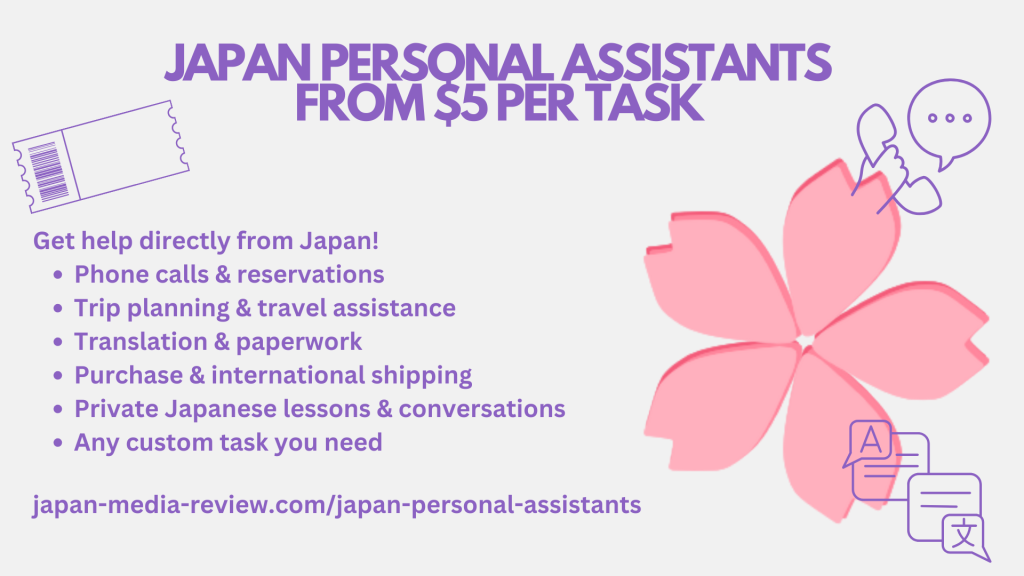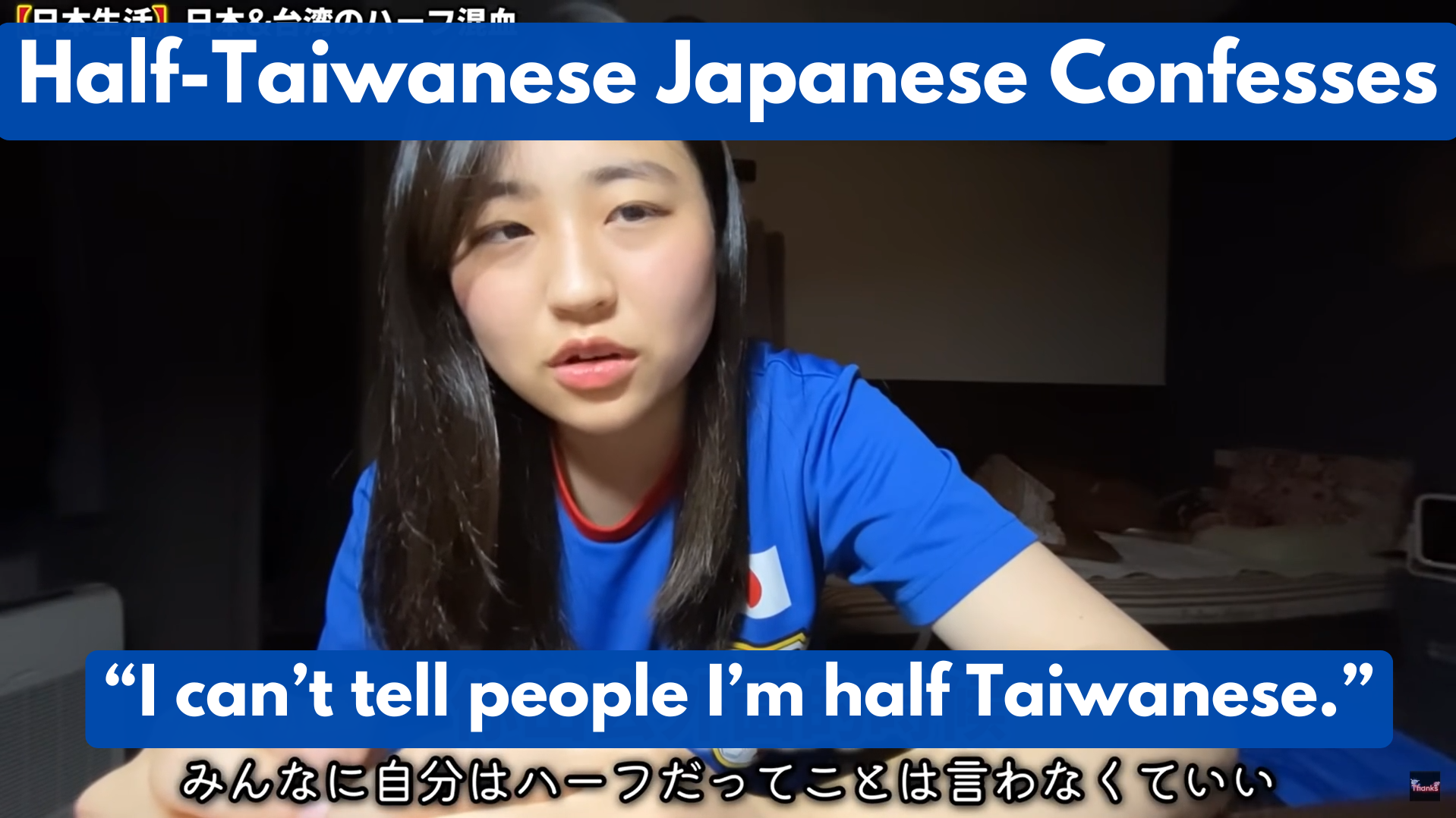Context
This woman who goes by the name of RinRin is half Taiwanese and half Japanese. She was raised in Japan. She is bilingual in Japanese and Mandarin, but she is more fluent in Japanese than Mandarin. In this video, she speaks a combination of Japanese and Mandarin. The video has both Japanese and Chinese subtitles. She answers questions from her fans regarding Japan.
Highlights
- Mixed Heritage Challenges: Growing up half Taiwanese, RinRin often felt like an outsider in both Japan and Taiwan. Her parents advised her to hide her Taiwanese heritage to avoid bullying and discrimination.
- Bullying in Japanese Schools: Bullying is often covert, involving gossip and exclusion rather than physical violence. RinRin thinks being half-Taiwanese has led to bullying by her Japanese school mates.
- Social Groups in Schools: Japanese school life revolves around small, tight-knit groups. It’s rare for everyone to socialize together.
- Anime vs. Reality: School life depicted in anime and manga is highly unrealistic. Common tropes like rooftop hangouts and high school romance rarely happen in real life.
- Japanese Xenophobia: Xenophobia in Japan often stems from a lack of experience with foreigners and limited English skills, making interactions intimidating for many Japanese.
Translation
Fan Question: If your Japanese is not perfect, would you suffer from discrimination in Japan?
RinRin: It shocks me how many people ask this exact question! I want Japanese people to know this: foreigners think Japanese people are scary. You can tell by how many people ask this question. If you are just a tourist in Japan, you won’t get discriminated against for not knowing Japanese. If you work in Japan and your Japanese isn’t good, you might face discrimination or even get bullied. If you’re just a tourist and try to speak Japanese, Japanese people think “wow this person is trying so hard! I want to help him/her!” But if you work in Japan and can’t speak Japanese well, Japanese people get annoyed and think you are useless.
Fan Question: Is there a lot of bullying in Japanese schools?
RinRin: Yes. Bullying in Japan is very covert and well hidden. The most common type of bullying is trying to hurt the person indirectly. In Japanese dramas, bullying involves physical violence, making someone’s desk dirty, or flipping over someone’s lunchbox. These don’t happen in real life. In real life, bullying usually takes the form of gossip and rumors. I was bullied like this in primary school and high school. When I joined my high school’s archery club, I felt discrimination.
When I was in the first grade of primary school, many boys bullied me. They talked about me and stared at me. They would refuse to give me lesson materials. There was one time, the boys kept throwing snowballs at me, and only me, even though I told them to stop. There was also a boy who kept bullying me. I don’t know if it’s because I’m half Taiwanese or something wrong with my personality.
When I joined the archery club in high school, it was fun at first but it got weird by the end. Slowly, people stopped talking to me. They would stare at me and laugh. I hated that, so I quit the club. In Japan, things like this happen to me from time to time. I don’t know if it’s because I’m half Taiwanese. I think if you’re a foreigner and try to live, study, or work in Japan, it can be painful. I think Japanese dislike foreigners. This is just my personal feeling.
My mom is Taiwanese, and she’s considered a foreigner in Japan. My parents have always told me that I shouldn’t tell others that I’m half Taiwanese. They tell me to just say I’m Japanese. Why? They think if people know I’m half Taiwnaese, there might be problems, bullying, and discrimination. This makes me sad. In Japan, people think I’m Taiwanese. In Taiwan, people think I’m Japanese. What am I? I’m always considered a foreigner. I feel lonely. Of course, not all Japanese bully foreigners; some are kind and friendly. I have good friends in Japan who don’t treat me differently just because I’m half Taiwanese. There are more kind Japanese than mean ones, but there is always a certain portion of Japanese who discriminate against foreigners. I wish Japan would become more tolerant toward foreigners.

Fan Question: Is it true that Japanese people act distant with foreigners? How can you befriend Japanese people?
RinRin: Of course Japanese act distant when you first meet them. It takes time to become close. But they don’t dislike it if you try to talk to them. To Japanese people: it’s a big problem that this is how foreigners see you! They think you are difficult and scary.
Fan Question: In Japanese schools, do girls only stick to their own small groups? Or does everyone hang out together?
RinRin: People stick to their own small groups. It’s impossible for everyone to all hang out together.
Fan Question: How is the English level of public school English teachers in Japan?
RinRin: It’s very bad. All the English teachers I’ve seen in Japan pronounce English in the same way as Japanese. The English they speak is just Japanese.
Fan Question: Is school life as portrayed in anime and manga realistic?
RinRin: No! Not at all. It’s all lies. In anime, students always hang out on the rooftop and confess to their crush on the rooftop. That never happens. You are not allowed to go to the rooftop in most cases because it’s dangerous. The anime type of school romance between handsome boys and pretty girls also never happens. Everyone in real life is ugly.
Fan Question: Is it true that Japanese people love Taiwan?
RinRin: Yes. Japanese people know how much Taiwan has helped Japan in the past, so they are very friendly toward the Taiwanese.
Fan Question: Is it true that Japanese women don’t dine out alone?
RinRin: I think so. If a restaurant or cuisine has a masculine image, it’s hard for women to eat there alone. Some women care about how others see them. These women can’t dine alone in restaurants like Sukiya or Matsunoya.
Fan Question: Why are Japanese people xenophobic?
RinRin: Japanese people don’t know how to interact with foreigners, so they are scared. They also don’t know English. They genuinely don’t know how to handle interactions with foreigners. That’s the reason.
Support us with a one-time donation!
Tired of learning about Japan through Western interpretations? Japan Media Review translates Japanese media to show you what Japan is really talking about.
Bluesky Social: @japan-media-review.bsky.social
YouTube: https://www.youtube.com/@JapanMediaReview
Exclusive content on Patreon: https://www.patreon.com/c/JapanMediaReview



